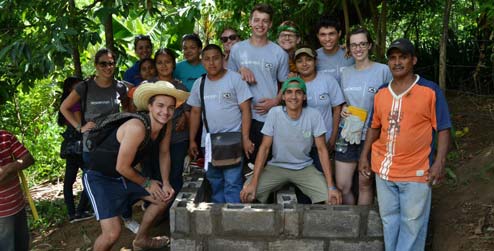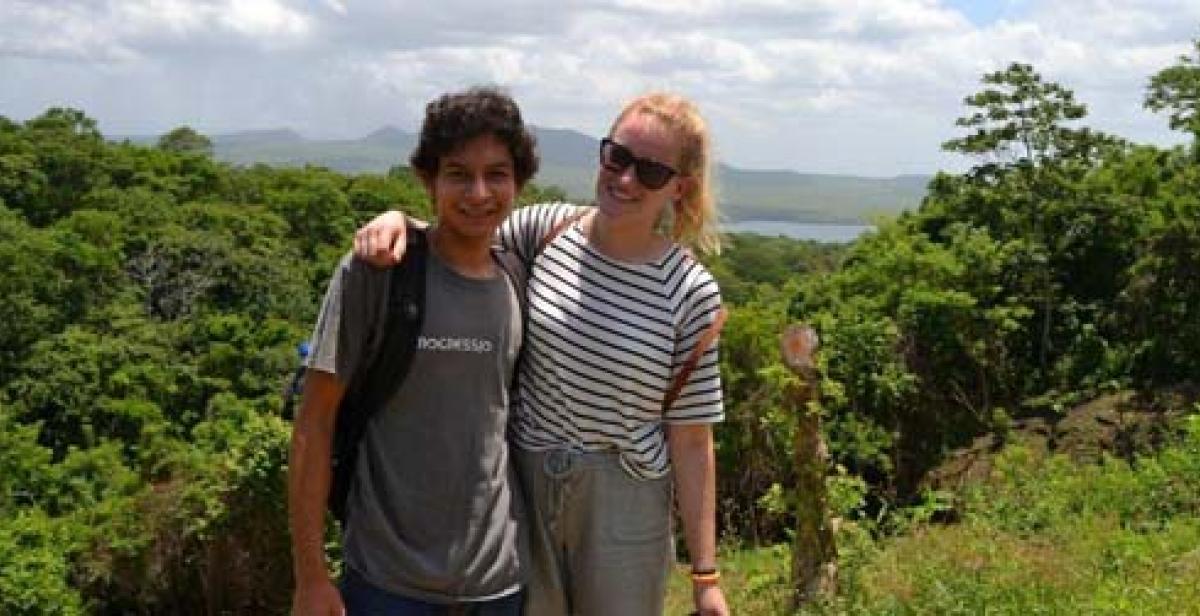Laying the first bricks of the eco latrines was a very exciting moment.
The first few weeks of our placement had been spent in preparation. We had workshops and training, surveyed families in the village of El Pochote and gave presentations to the community. Whilst this was all necessary, we were itching to start construction, and the Master of Work found a very eager group of volunteers when he came to show us how it was done.
Our training gave us extensive knowledge on why it was so vital to build eco latrines in El Pochote. The previous cycle of volunteers had surveyed three communities about the problems caused by their latrines, and results showed that El Pochote had the most severe issues caused by their traditional latrines. In one case, 19 people were sharing one latrine and another family was using a latrine which was more than 40 years old. Their underground design meant that human waste could contaminate the soil and then the water supply. When old traditional latrines are covered over when they are no longer in use, the ground can become unstable and unsafe for children. The latrines also attracted insects that spread diseases.
There are many benefits to eco latrines. They do not use precious water. The storage compartment is above ground so has no chance of contaminating the earth below. They are cheaper to construct than toilets with septic tanks, and rarely need to be replaced. After six months the waste can be turned into compost which can then be used for agriculture or sold, so people can create revenue from their toilets.
We used surveys to establish which families would be first to receive eco latrines. The vast majority of the community wanted to be considered to receive one because of the benefits for the environment and their health. Unfortunately we could not build eco latrines for every family immediately (the rest would be constructed by the next cycle of volunteers), but through surveying we were able to establish which families were most in need.
Conducting surveys also gave us the opportunity to get to know El Pochote and its lovely residents. El Pochote is a very rural village affected by poverty, with poor access to water and resources. It is a natural area untouched by technology, with vast greenery and incredible lagoon views, which should not continue to be damaged by unsuitable latrines. Progressio had already established themselves with the people of El Pochote during the previous cycle, so we came in on a good footing. Whilst surveying we were welcomed into the families’ homes, offered fresh mangoes, and even given baby rabbits to play with.

In our groups we had a wide range of experience levels, from those who worked in construction to those who had never touched a tool. For the latter, it was especially exciting to finally do some concrete work. When building the first latrine we worked in full groups to learn the right technique, but soon we were set free into smaller construction groups, which created a more efficient system. Aside from building we worked in sub-teams on complimentary projects relating to gender equality, sexual diversity, and the environment.
It was challenging working on these other projects whilst also completing our construction target of 30 eco latrines, but it was definitely worth the long hours. Hitting our target was really satisfying, as it meant we were able to deliver the service that we’d promised to El Pochote. Hopefully our work will move towards improving the environmental sustainability of the village, and will be continued by the next two cycles of volunteers.
Written by ICS returned volunteer Katie Exell



